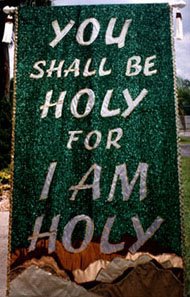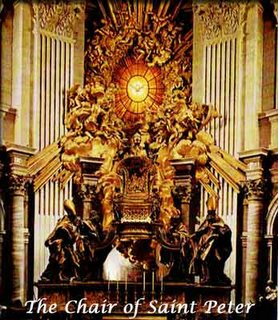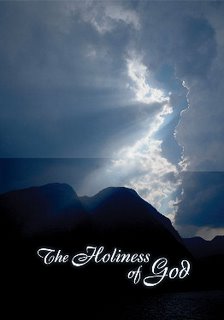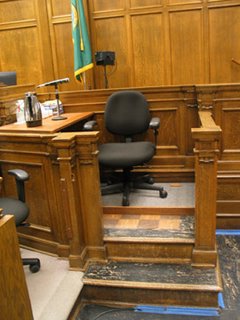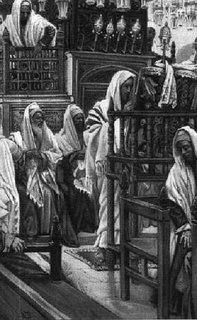 6th Sunday of the Ordinary Time
6th Sunday of the Ordinary Time
Mark 1: 40-45
We communicate not only by what we say. We also communicate by how we say what we say. The tone of our voice is very much important in determining the precise meaning of what we want to put across. Take for example the Gospel we have today. A leper approaches Jesus and says, “If you wish, you can make me clean.” What exactly does the leper mean?
Depending on the tone of his voice, the words of the leprous man may have four possible meanings. First, the leper may be expressing profound belief in the healing power of Jesus. Perhaps, the words “If You wish, You can make me clean” is a sincere profession of the leper’s personal faith in Jesus. He is saying that he believes that Jesus can heal him from leprosy. This first meaning is the most frequently and most widely accepted meaning of the leper’s declaration.
The second possible meaning shifts the focus from the leprous man to Jesus the Healer. Maybe the leper is, in fact, trying to help Jesus discover that He has the power to heal. The leprous man is actually telling Jesus that Jesus can heal and can heal even the most dreaded disease such as leprosy. “If You wish, You can make me clean” may be the same with “Go ahead, Jesus, You can do it. Don’t worry, You can cure me.” This kind of interpretation of the statement of the leprous man in the Gospel today sounds awkward, but remains possible nonetheless.
The third possible meaning of the same scriptural passage puts the leper even more superior to Jesus. By his words, “If You wish, You can make me clean,” the leper is giving Jesus the permission, the freedom, and the opportunity to heal him from leprosy. The leper is allowing Jesus to enter into the privacy of his leprous condition, to touch him in the core of his vulnerability, to mind him who is considered by Jewish religion and society an outcast. After all, healing happens only when he who is afflicted allows the healer to heal him. Understanding the words of the leper to Jesus this way appeals to those who really reflect deeply on the Gospel today because it gives importance to the role that the afflicted plays in his or her eventual healing.
The fourth meaning is the most disturbing. Can it be that, by his declaration “If You wish, You can make me clean,” the leper is taunting Jesus? Is there any sarcasm in the tone of the leper’s voice? Notice that the if is placed before the phrase “You wish”, not before the words “You can make me clean”. Very clearly, the leper does not doubt the healing power of Jesus: he says, “If You wish, You can make me clean” and not “If You can make me clean, wish it”. While certain about the healing power of Jesus, can it be possible that the leper doubts Jesus’ goodwill? The leper’s statement almost sounds like a question rather than a declaration. It sounds like he is questioning Jesus’ goodwill to heal Him. Perhaps, the years of being a religious and social outcast, already taught the leper the painful lesson that no one will ever bother about him, that no one will ever care enough about him, that no one, who is in his right mind, will ever give a damn about him and his misery. Thus, when someone like Jesus comes along, while faith inspires him to approach Jesus, the cynicism he has developed regarding the sincerity of any good doer cannot be easily conquered by him.
“If you wish, you can cure me” – what does it really mean? What is behind the declaration of the leprous man in the Gospel today? Is he professing faith? Is he encouraging Jesus, sort of cheering for Him, to use His power to heal? Is he giving permission to Jesus to touch and cure him? Or is he taunting Jesus because he doubts human sympathy and even, perhaps, divine compassion?
The leper’s words move us to reflect on two things: what we wish and what we can.
What do we wish? What can we? Ano ang nais natin? Ano ang kaya natin? Ano ang gusto natin? Ano ang gagawin natin?
What we wish and what we can are not always the same. Sometimes we wish for something that we are incapable of. Worse, we wish for something we are not even willing to work for, to sacrifice for, to stand for. There is a wide gap between our wishing and our doing. For example, we wish for peace but do we make peace? We wish to be forgiven as many times as we need forgiveness yet can we forgive all our enemies? We wish to be good but can we readily kick a bad habit? We wish a better life but can we let go of our selfish agenda? We wish progress; can we make sacrifices?
The other way around is also true. There are occasions when what we are capable of does not count among our great dreams. We can forgive but we rather not. We can give but we rather take. We can become heroes but we rather aspire to become celebrities. We can become great saints but we rather wish to become lukewarm in Faith. We can help but we rather not get involved because becoming involved means taking risks.
In the Gospel today, there is no doubt that Jesus can heal the leprous man. The beautiful thing about the same Gospel is that there is also no doubt that Jesus wishes to heal the same leper. What Jesus is capable of doing, Jesus wishes to do. What Jesus wishes to do, Jesus actually does. Hence, His reply to the leper: “Of course, I do will it. Be cured.”
In everyday life, we do not always encounter a leper along the way. But there are many other “lepers” we meet each day. They are the outcasts of society, those looked down upon not because they are physically deformed but because they are spiritually and morally depraved. There are also others who are not leprous but, just the same, are in need of our attention, compassion and care. We come to know who they are when our eyes meet theirs and we hear in our hearts again the words: “If you wish, you can cure me.”
How do their words sound to us? Are they expressions of belief in us, of hope in us? Are they words of encouragement for us to make use of our gifts for the sake of others? Are they affirmations that tell us that we can be compassionate, to be loving, to be heroic, to become a saint, if only we really want to? Or are those words taunting us, doubting your good will: “You can cure me but do you really wish it?”
Remember a “leper” in your life, in your mind look straight into his eyes and, with your heart, listen to what he says and how he says it. Let us be silent; and if in our silence, we feel uncomfortable seeing and hearing this “leper”, perhaps he or she is indeed taunting us.
